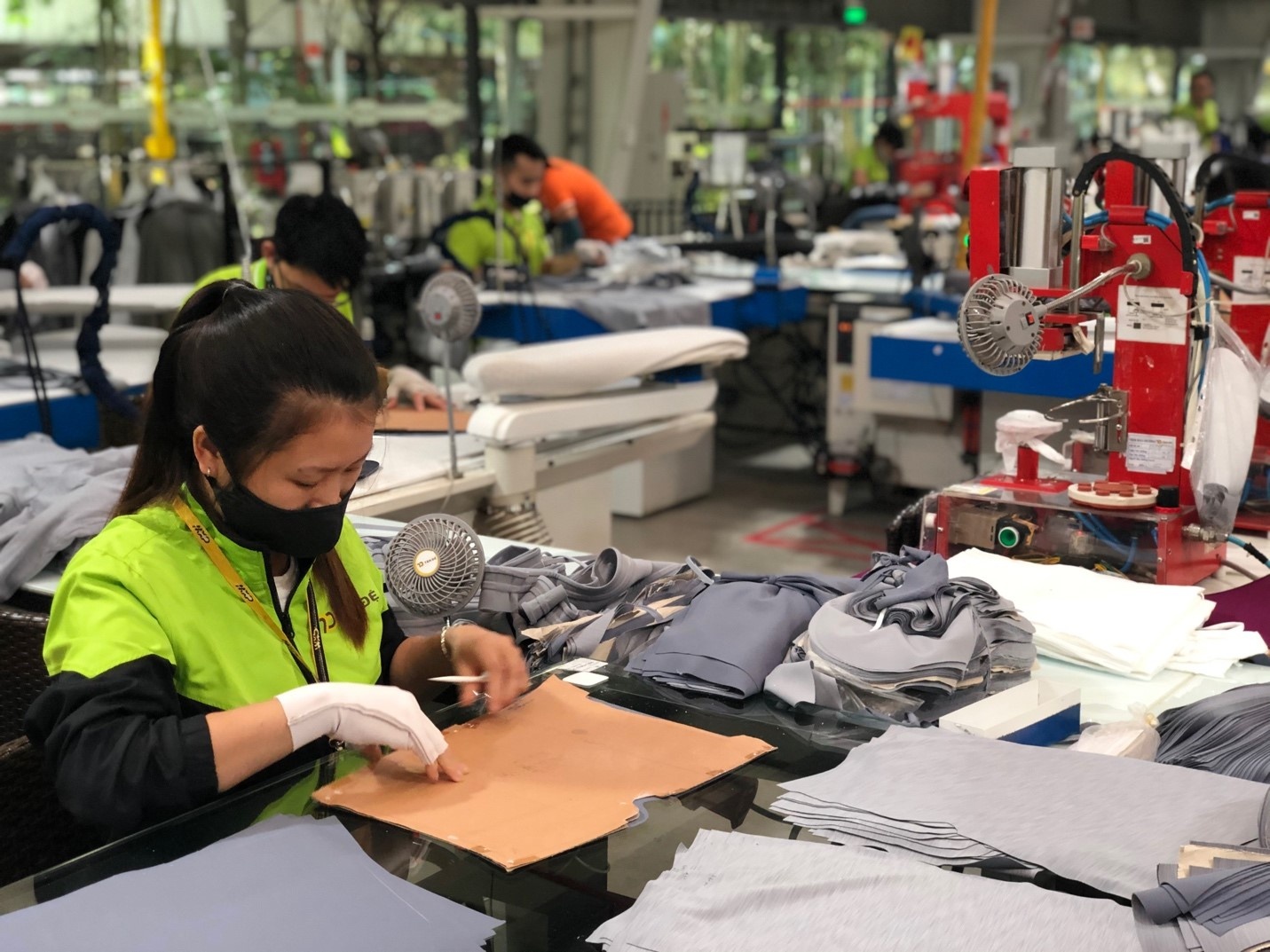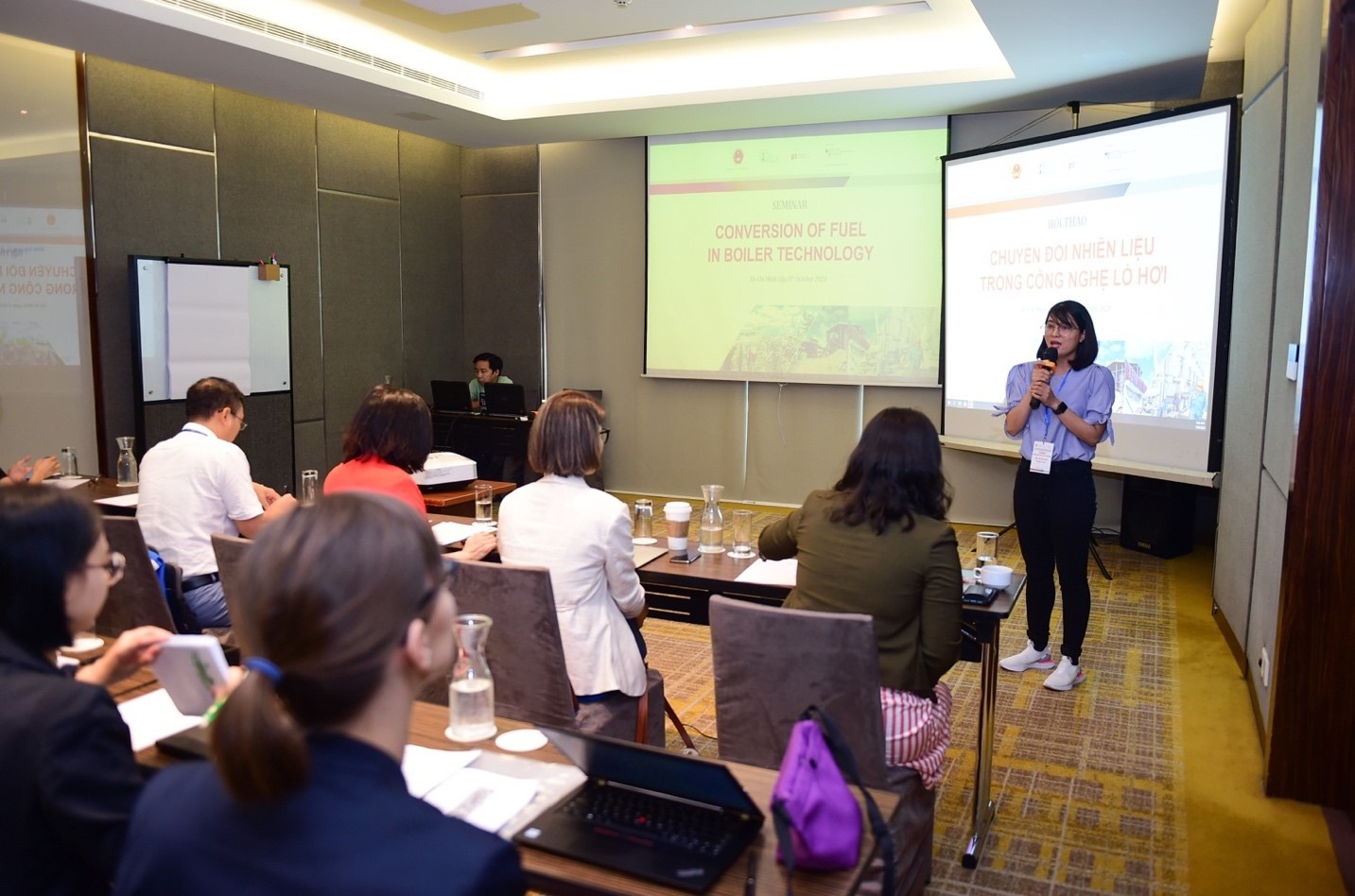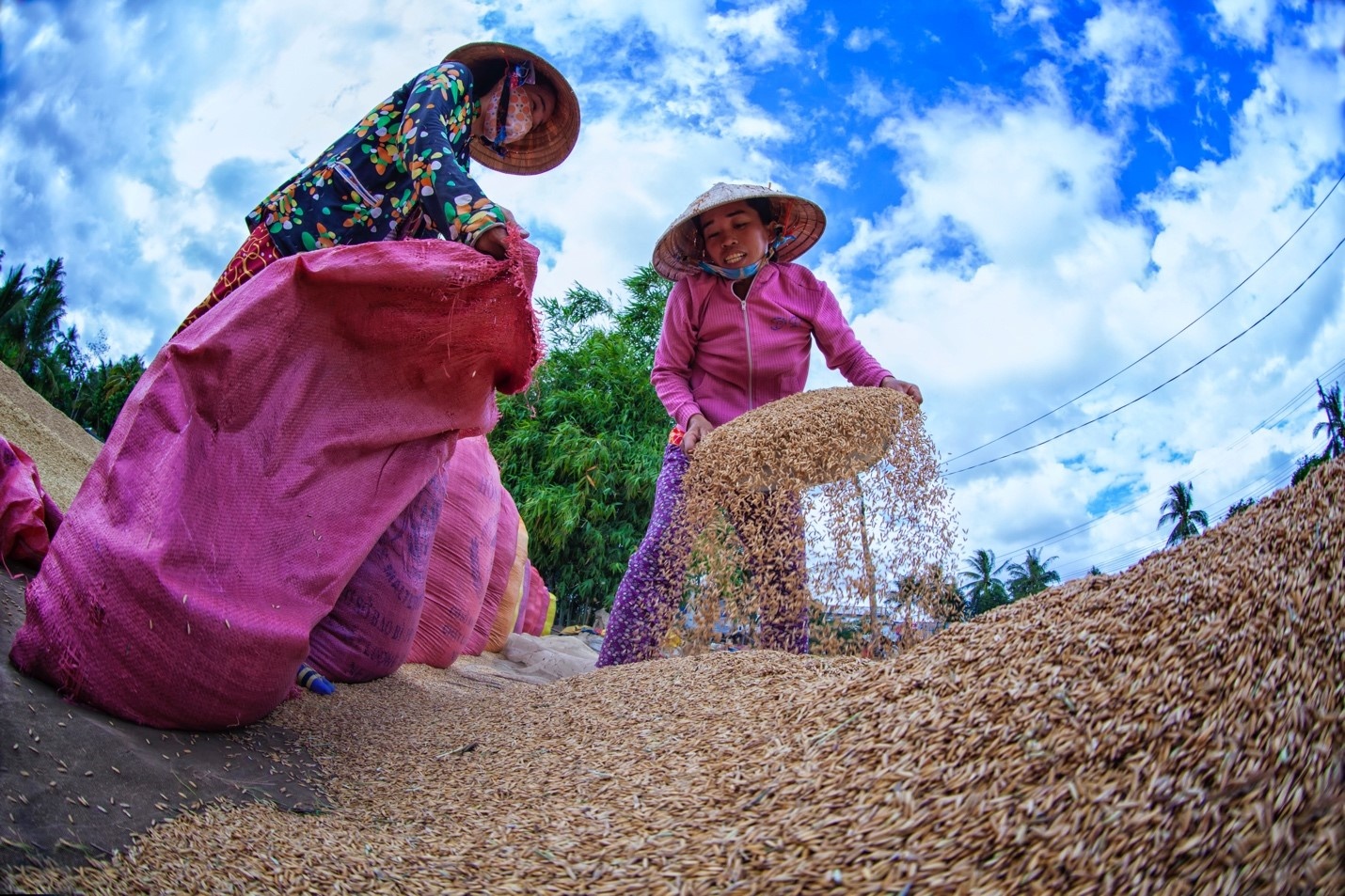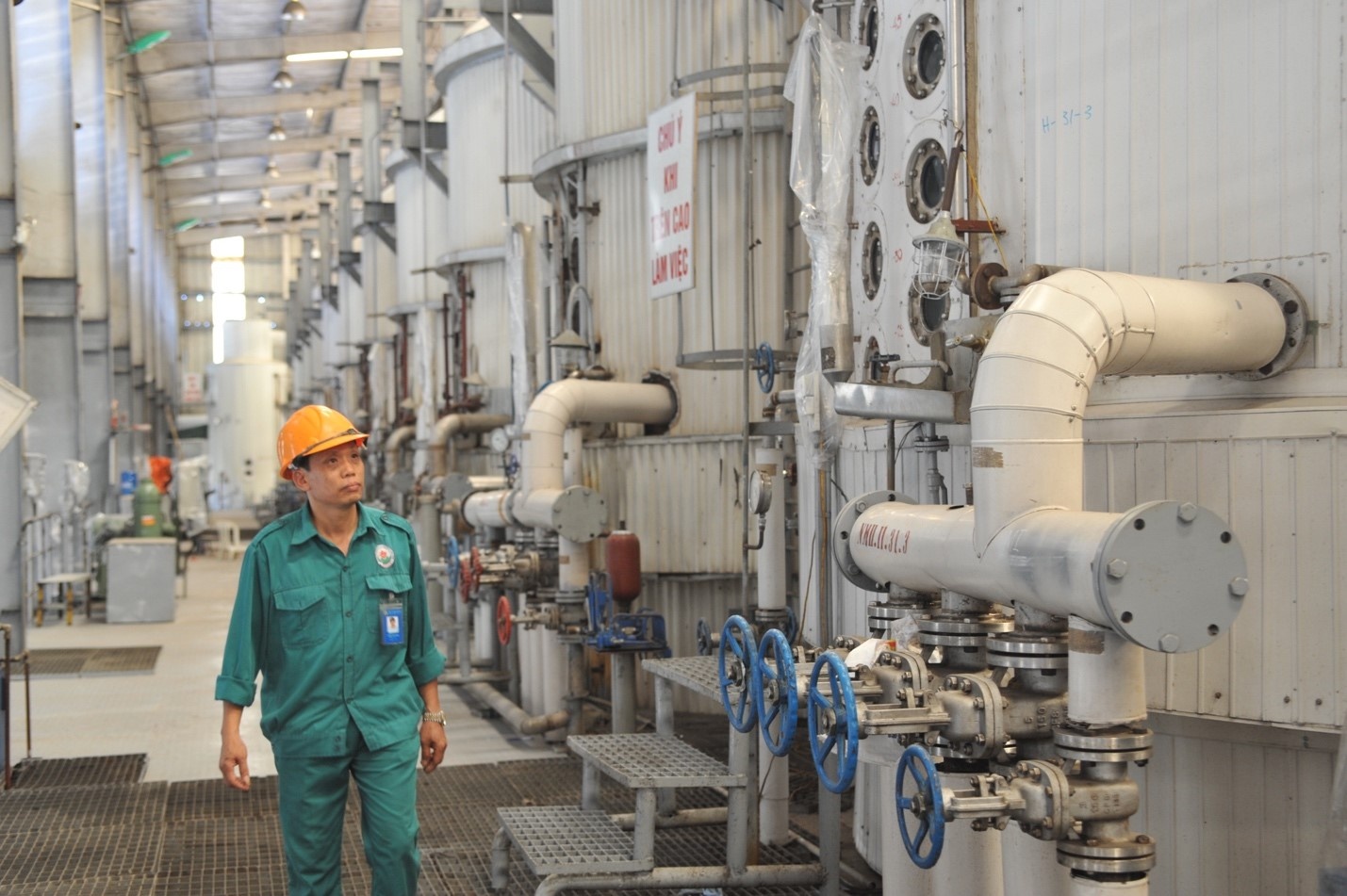GIZ and Decathlon join efforts to improve environmental performance in Vietnam
Within a recently signed agreement, two GIZ projects will this year partner with Decathlon Vietnam to strengthen the company’s suppliers in terms of climate action, water use, energy efficiency, and chemical management.
The two ongoing GIZ projects are ‘Climate Protection through Sustainable Bioenergy Markets in Vietnam’ (BEM) and ‘Fostering and Advancing Sustainable Business and Responsible Industrial Practices in the Clothing Industry in Asia’ (FABRIC).
 |
| A garment company in Thai Binh participates in GIZ FABRIC programme on environmental improvement (Cre: GIZ) |
The global textile supply chain contributes to climate change through greenhouse gas emissions during production, but the industry itself is also impacted by climate change.
Current impacts and future risks include disruption of supply chain production and transportation, as well as higher input costs from rising energy and water prices, while customer and corporate demand for climate-friendly products is growing.
 |
| Since 2019, the BEM project has worked with Decathlon Vietnam to organise a series of activities raising awareness and supporting the green energy transition (Cre: GIZ) |
Moreover, global commitments and European legislation, among others the German Due Diligence Act that will enter into force in 2023, are increasing the pressure, as they require multinational companies to identify, prevent, mitigate, and account for environmental and social risks along supply chains. As a result, leading brands and manufacturers have set climate and environmental protection targets.
To tackle the industry challenges in Vietnam’s supply chain, together with Decathlon, GIZ will provide training to factories.
Specifically, the GIZ FABRIC project will offer free e-learning courses, such as Climate Action Training and Chemical Management Training via atingi.org. The FABRIC training tools are a combination of capacity building measures and advisory services to train its brands and suppliers.
The Climate Action Training provides basic knowledge on climate change, greenhouse gas accounting, and reduction solutions in the area of energy efficiency and renewable energy, which has been developed in a collaboration with the UN Fashion Industry Charter for Climate Action and 13 brands, including Decathlon. The Chemical Management Training will support factories to improve and implement sustainable chemical management systems.
The distinctive e-learning courses tutored by experts fit well with the learning needs of the factory staff and result in a cost-effective implementation.
Meanwhile, the GIZ BEM project will join forces with Decathlon to replace coal consumption with sustainable biomass at the latter’s suppliers in Vietnam.
BEM will provide Decathlon with technical guidance towards improving factory boiler efficiency, identify sustainable solutions for biomass supply, open access to biomass markets for factories and map out a practical supply of biomass resources.
 |
| Vietnam is available with biomass resources including post-harvesting and post-processing waste from the agricultural and forestry industries (Cre: GIZ) |
Marc Beckmann, director of GIZ FABRIC underlined, “Tackling climate change requires collaboration with international brands to jointly improving the conditions on the suppliers’ side where most of the emissions and environmental impacts happen. This is why our collaboration is important and urgent!”
He added, “These innovative approaches for training will support suppliers to advancing their environmental performance. Thereby, they can position themselves as competitive actors in international supply chains. The learnings from this collaboration will also benefit the sector regionally and globally.”
| Under the FABRIC project, GIZ has worked with a variety of brands and expects to expand similar cooperation to other countries with large garment and textile industries, such as Bangladesh and Pakistan. |
GIZ FABRIC will share the learnings with relevant decision makers, support the expansion to other countries, while the digital trainings are already available on Atingi and free to use for everyone.
Nathan Moore, director of GIZ BEM said, “Our project aims to improve the preconditions for a sustainable use of biomass for electricity and heat generation in Vietnam. Since 2019, the BEM project has worked with Decathlon Vietnam to organise a series of activities raising awareness and supporting the green energy transition.”
In his words, the formalisation of this joint initiative by BEM, FABRIC, and Decathlon would serve as a springboard for increasing commitments to maximise biomass energy in Vietnam, contributing to the nation’s sustainable development and climate goals.
Decathlon in return will provide its suppliers’ factories with the training to increase the use of bioenergy and other renewable energy sources, and support studies on biomass supply chain.
Featuring different production processes with more than 100 suppliers’ factories covering garment, textile, footwear and accessories in Vietnam, Decathlon will later disseminate the lessons learnt from this partnership with GIZ to other national and global brands at related forums to multiply the impact.
“Decathlon is among more than 120 fashion brands and retailers having committed to the principles and targets in the UN Fashion Industry Charter for Climate Action, which provides a global vision for the industry to target of 45 per cent reduction of greenhouse gas emissions by 2030 and net zero emissions no later than 2050,” said Jérémie Piolet, the sustainability leader of Decathlon Vietnam.
“Working with the BEM and FABRIC, we hope that we can only use biomass for our industrial heat or electricity supply by 2025 and become a trailblazer in sustainable use of biomass in the textile and garment sector.”
 |
| GIZ BEM aims to promote sustainable use of biomass resources for electricity and heat generation in Vietnam (Cre: GIZ) |
The partnership is part of GIZ’s Programme for Improvement of Environmental Performance of factories in Asia. Under the FABRIC project, GIZ has worked with a variety of brands and expects to expand similar cooperation to other countries with large garment and textile industries, such as Bangladesh and Pakistan.
Vietnam is a leading supplier of high-quality textiles to global market leaders, but this will impose a heavy burden on the environment if the energy-intensive processes of textile manufacturing continue to be highly dependent on coal and oil.
Urged to find a renewable energy source to replace fossil fuels, Vietnam sees great potential in biomass. The country has abundant biomass resources including post-harvesting and post-processing waste from the agricultural and forestry industries.
What the stars mean:
★ Poor ★ ★ Promising ★★★ Good ★★★★ Very good ★★★★★ Exceptional
Related Contents
Latest News
More News
- $100 million initiative launched to protect forests and boost rural incomes (January 30, 2026 | 15:18)
- Trung Nam-Sideros River consortium wins bid for LNG venture (January 30, 2026 | 11:16)
- Vietnam moves towards market-based fuel management with E10 rollout (January 30, 2026 | 11:10)
- Envision Energy, REE Group partner on 128MW wind projects (January 30, 2026 | 10:58)
- Vingroup consults on carbon credits for electric vehicle charging network (January 28, 2026 | 11:04)
- Bac Ai Pumped Storage Hydropower Plant to enter peak construction phase (January 27, 2026 | 08:00)
- ASEAN could scale up sustainable aviation fuel by 2050 (January 24, 2026 | 10:19)
- 64,000 hectares of sea allocated for offshore wind surveys (January 22, 2026 | 20:23)
- EVN secures financing for Quang Trach II LNG power plant (January 17, 2026 | 15:55)
- PC1 teams up with DENZAI on regional wind projects (January 16, 2026 | 21:18)

 Tag:
Tag:


























 Mobile Version
Mobile Version